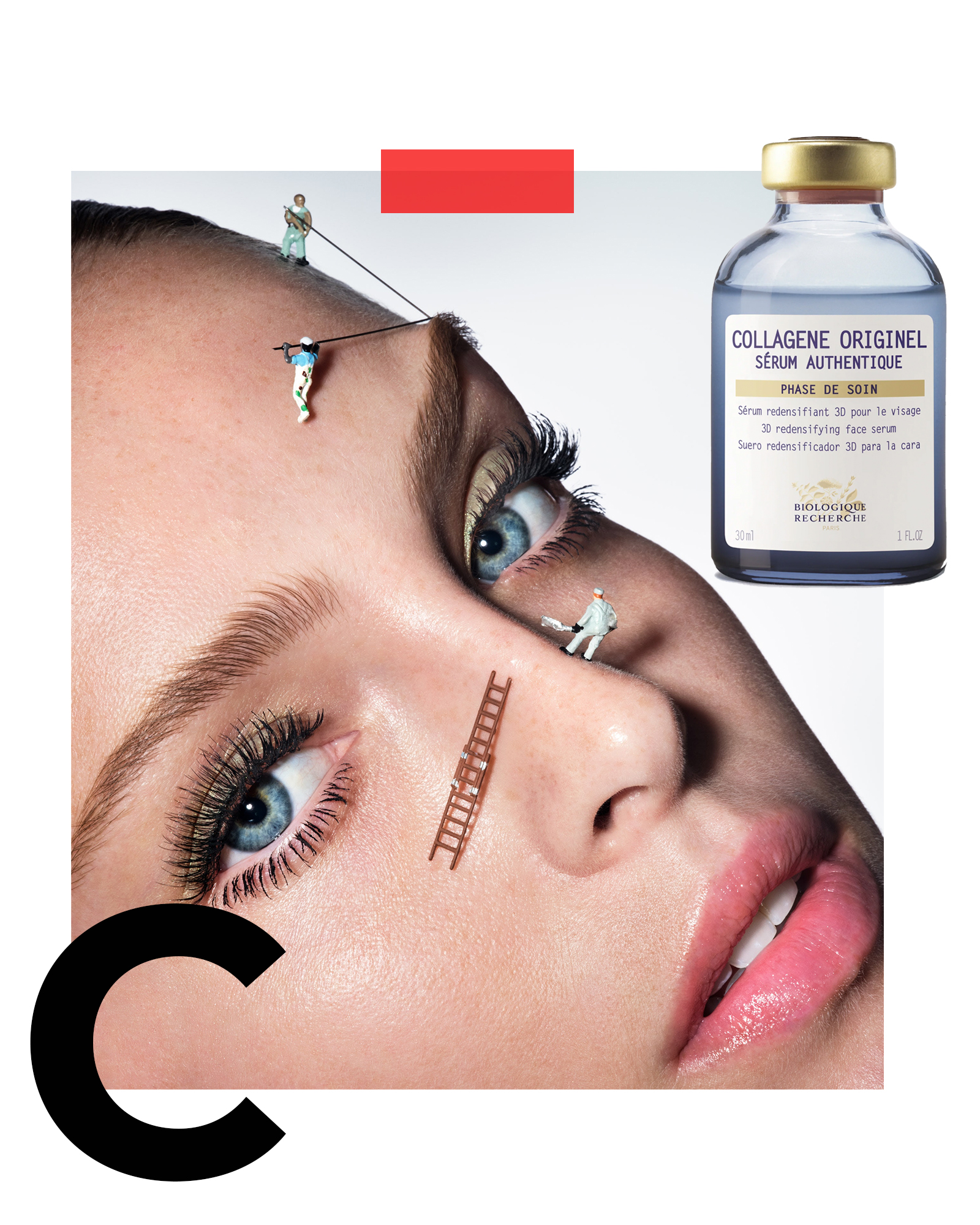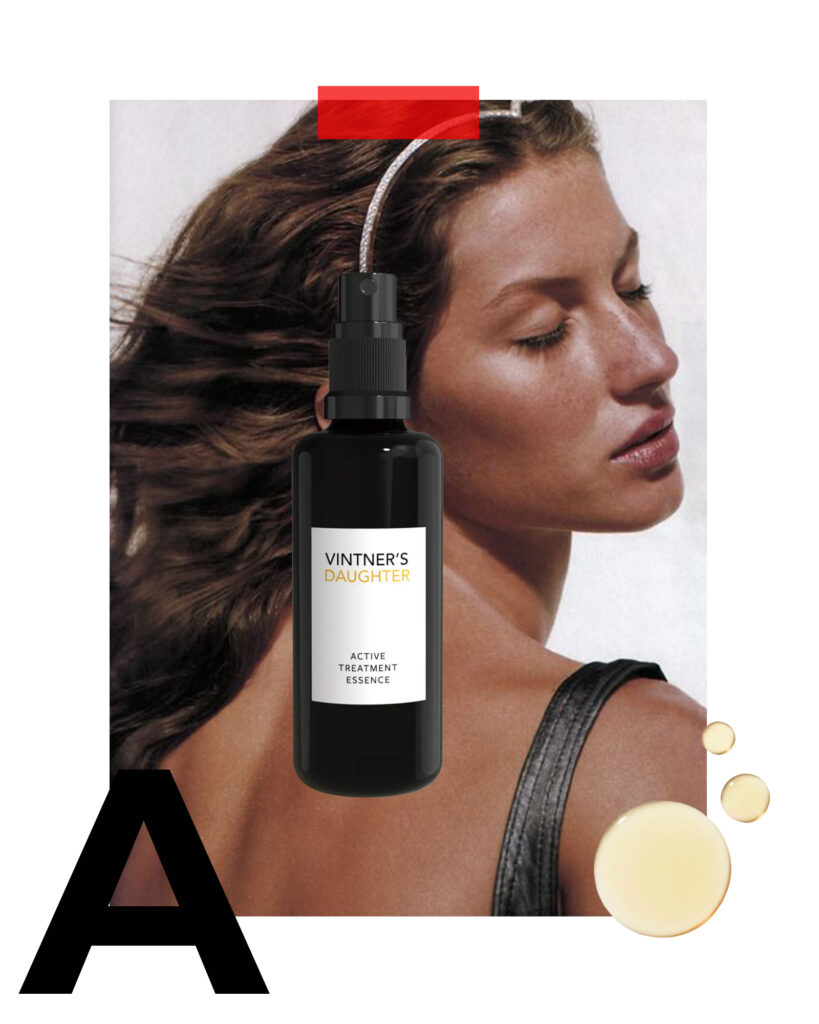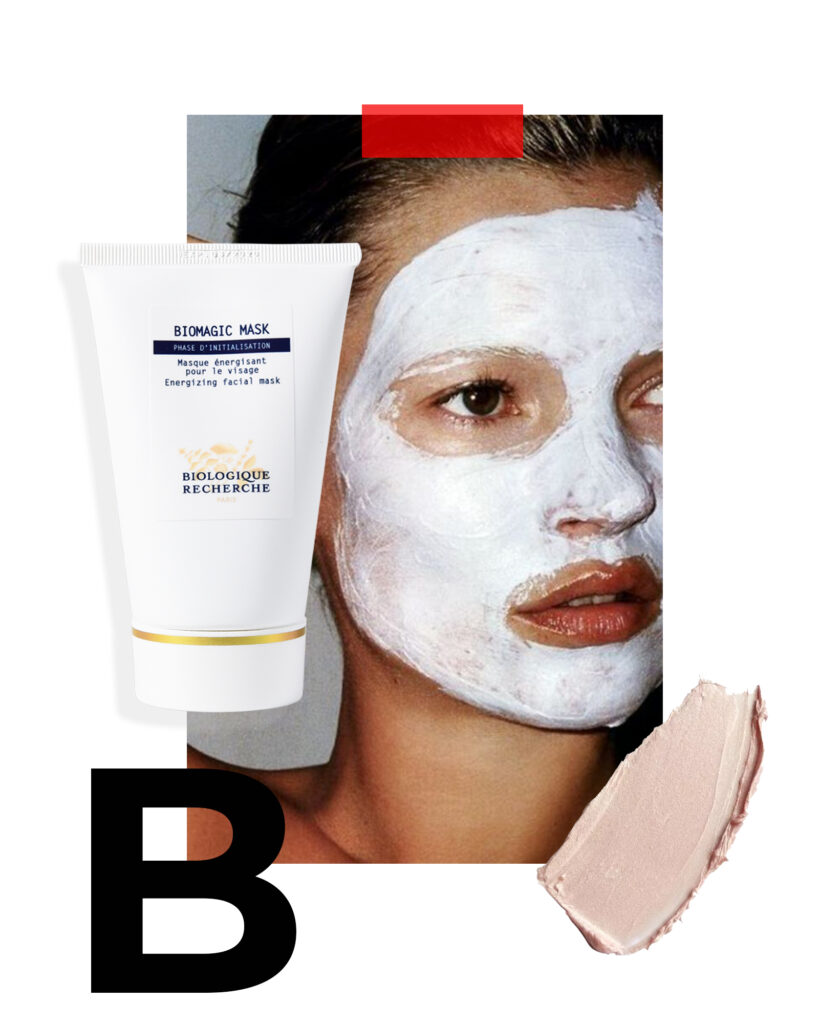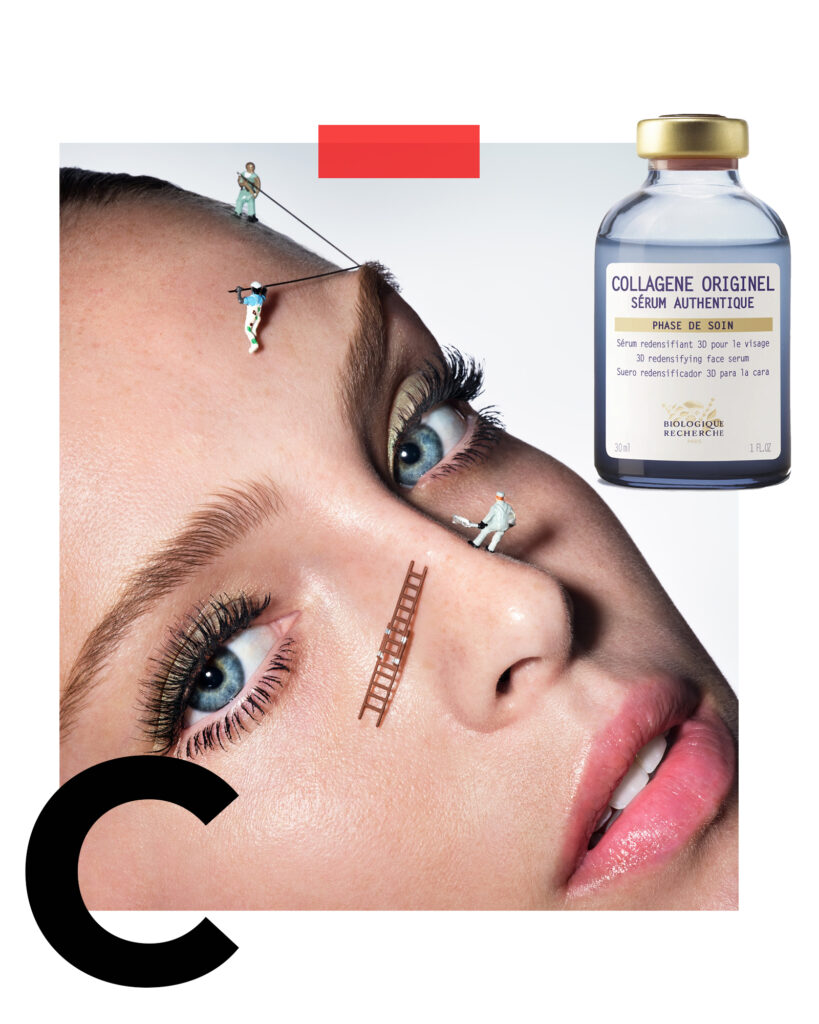Caffeine
WHAT IT DOES:
Just like a cup of coffee, caffeine helps wake our skin up, and works to firm, brighten and tighten. Often used in eye products, caffeine can help reduce puffiness in the delicate under-eye area.
HOW IT WORKS:
Caffeine’s circulation-boosting properties allow it to help restore clarity and brightness to the skin’s complexion. It can help reduce the build-up of fluid thanks to anti-inflammatory properties, and can also help tighten areas with cellulite.
MG SAYS:
Say goodbye to dry, flaky skin and the stubborn look of cellulite. Caffeine based products make for great natural body scrubs because they can stimulate blood flow, which in turn reduce the appearance of cellulite.
Calendula
WHAT IT DOES:
Calendula flowers are full of healing and anti-inflammatory properties, allowing the skin to be nourished and hydrated while also detoxifying and calming.
HOW IT WORKS:
Wonderful for inflammation, calendula, which contains carotenoids, nourishes the skin and supports the structure of our cells. Helping moisturise dry skin is one of the most common uses of calendula, thanks to the ingredient’s ability to hold moisture.
MG SAYS:
I love calendula oil, it is distilled from the petals of the marigold plant and is quite sticky in texture. It is one of the most effective treatments in reducing inflammation related to eczema, psoriasis and dermatitis and also offers antibacterial and immunostimulant properties for all skin types.
Castor Oil
WHAT IT DOES:
A common ingredient in skincare products, castor oil helps to cleanse with soothing. It is often found in soaps, shampoos and topical creams.
HOW IT WORKS:
A wonderful binding agent, castor oil can hold many different ingredients together to create easy to use formulations. It is also an emollient, with the oil known for helping soften skin and add moisture.
MG SAYS:
Castor oil has recently shot to fame thanks to the Kardashians, who are said to rub the oil into their brows and lashes to condition and promote growth.
Centella Asiatica (Gotu Kola)
WHAT IT DOES:
Centella asiatica, or Gotu Kola, has profound healing properties, and helps rebuild collagen, stimulate new cell growth and improve blood circulation. In turn, it can lead to a brighter, more healthy-looking complexion.
HOW IT WORKS:
By stimulating circulation, centella asiatica helps to brighten the skin. In turn, its high percentage of Vitamins C, A, B1 and B2 work together to provide overall strength to the skin’s cells.
MG SAYS:
Also known as Gotu Kola, centella asiatica contains a vibrant mix of amino acids, beta carotene, fatty acids, and phytochemicals all of which are essential for skin health. It is a wonderful ingredient for those who wish to brighten and energise their complexion with the added benefit of antioxidant protection.
Ceramides
WHAT THEY DO:
Naturally occurring in the body, ceramides are fatty acids which have serious reparative qualities, helping to restore the skin’s own moisture barrier to lock in hydration and resulting in overall glowing and soft skin.
HOW IT WORKS:
Ceramides retain water and encourage hydration from within, and when applied topically can help restore some of that hydration we lose as we age. They help directly improve the skin’s elasticity, and inject a serious dose of moisture right into the cells thanks to their naturally occurring fatty acids.
MG SAYS:
Ceramides are ideal for improving the appearance of stressed, sensitive, scaly, rough, dry, aged or sun-damaged skin.
Cetearyl Olivate
WHAT IT DOES:
Derived from olives, cetearyl olivate helps with skin strength and hydration thanks to its emulsifying properties.
HOW IT WORKS:
Often found in other products, including many hair conditioners or body creams, cetearyl olivate is used as an emulsifier to soften the skin.
MG SAYS:
This emollient works to replenish the lipids in the skin as well as giving creams and serums a sumptuous texture. It is useful in providing comfort for dryer skin conditions and in the treatment and softening of scar tissue.
Chamomile
WHAT IT DOES:
With a number of key ingredients derived from chamomile, the overall flower itself is rich in benefits. From anti-inflammatory to soothing properties, this antioxidant-rich ingredient is most often used to soothe and heal.
HOW IT WORKS:
Ultra calming, chamomile is filled with flavonoids, which help alleviate redness and itchiness. Anti-inflammatory by nature, chamomile’s soothing properties can relieve irritated, red or itchy skin.
MG SAYS:
Can’t make it to London to indulge in a signature Eve Lom facial? No problem, you can recreate the legendary facialist’s treatment at home — she harnesses the calming effect of this plant extract by applying gauze soaked in chamomile to the faces of her clients as a part of the skin ritual.
Charcoal
WHAT IT DOES:
Despite its harsh exterior, charcoal is a wonderful detoxifier, known to draw out impurities. Perfect for removing oil and helping with blemishes, charcoal helps purify and clarify the skin.
HOW IT WORKS:
One of the world’s best natural absorbers, charcoal essentially draws out impurities from the skin, including dirt and excess oil. Plus, it’s antibacterial meaning it’s perfect for acne-prone or oily skin.
MG SAYS:
Whilst highly effective at drawing out dirt, excess oil and impurities, charcoal is also renowned for being ultra-gentle and therefore is ideal for angry, reactive complexions.
Cholesterol
WHAT IT DOES:
Essential for healthy, functioning skin, cholesterol helps keep our barrier intact and supple, and regulates the amount of fatty acids in our skin. The result? Hydrated and smooth skin.
HOW IT WORKS:
Cholesterols are either plant or animal derived, which then bind with water to moisturise and hydrate. They can also be added to creams as a thickening agent as an extra dose of moisture.
MG SAYS:
Cholesterol is a naturally occurring molecule in the skin, responsible for ensuring the efficient function of the skin’s lipid barrier as well as maintaining optimal moisture levels. It is a fundamental ingredient in ensuring the skin is strong, resilient and can fight off external aggressors, pathogens and irritants.
Chondroitin Sulphate
WHAT IT DOES:
Chondroitin sulphate is an essential building block of our body, helping grow healthy cartilage. It is also used as a softening agent in skincare.
HOW IT WORKS:
Chondroitin sulphate inhibits matrix metalloproteinases (MMP) which destroy the skin collagen network. It reinforces the connective tissue where collagen and elastin and holds hyaluronic acid to ensure the skin remains plump, springy and firm.
MG SAYS:
Chondroitin Sulfate is the derivative of a naturally occurring structural molecule present in the connective tissue of the skin. It is present in the matrix where collagen and elastin reside. It is especially beneficial for skins suffering from sun damage, laxity and post-menopausal skins that are no longer synthesising collagen at a adequate rate.
Citric Acid
WHAT IT DOES:
Citric acid is a popular and powerful exfoliator. Found in (surprise!) citrus fruits including oranges, lemons and grapefruits, citric acid helps speed up cell turnover to reveal glowing skin.
HOW IT WORKS:
A type of alpha-hydroxy acid (AHA), this chemical exfoliator helps remove dead skin cells and reset the skin’s outermost barrier. It can help combat the appearance of fine lines, scarring and spots.
MG SAYS:
Citric acid is often used in skincare to regulate acidity and is fantastic for helping to achieve a smooth, even skin texture by gently exfoliating. Derived from citrus fruits, this AHA also gives products a refreshing, zesty scent.
Clay
WHAT IT DOES:
One of the most popular types of mask, clay helps refine pores and draw impurities out of the skin, making it ideal for acne-prone skin.
HOW IT WORKS:
Clay’s ability to draw out impurities from the skin makes it a wonderful mask. It can both absorb excess oil while tightening and remineralising the skin, leaving the skin refreshed and rejuvenated.
MG SAYS:
For oilier skin types, stick to using bentonite clay due to its superior absorption, tightening and acne-clearing abilities. For drier or more sensitive skin types, white kaolin clay is a better option for a more gentle treatment.
Cocamidopropyl
WHAT IT DOES:
Derived from coconuts, cocamidopropyl is a foaming agent used in many cleansers. However, its gentle nature makes it better than other foaming agents for sensitive skin.
HOW IT WORKS:
Creating a gentle lather, cocamidopropyl lifts away dirt and grime, helping cells turn over for a fresh complexion without stripping essential oils and moisture from the surface.
MG SAYS:
Cocamidopropyl is an incredibly gentle cleansing agent that creates a soft lather in cleansers. It is often found in baby products and baby shampoos due to its mild effect.
Cocoa Butter and Powder
WHAT IT DOES:
Cocoa butter and cocoa powder are derived from the same plant, the cocoa tree, but have very different uses. Cocoa butter’s rich, creamy texture is known and loved for its nourishing qualities, and is applied directly to the skin. Cocoa powder is known for its free-radical fighting antioxidant powers and can be applied as a mask or ingested.
HOW IT WORKS:
Cocoa butter is super rich in its moisturising properties, and helps fill in gaps between cells to prevent water loss. Ideal for cracked and ultra-dry skin, cocoa butter is not recommended for oily skin. On the other hand, cocoa powder is suited to all skin types and can help reverse skin damage thanks to its high dosage of antioxidants.
MG SAYS:
Harvested for centuries in Africa, nutrient-rich cocoa butter and powder have crept into the makeup world in recent years and can be found in lipsticks, eyeshadows and powders. Skin-loving properties aside, the irresistible scent is an instant mood lifter.
Cococin
WHAT IT DOES:
Cococin is derived from the water of fresh young coconuts and is used for supporting hydration and new cell growth in the skin. As a growth factor from coconuts and used in anti ageing ingredients, cococin helps restore skin health in aged and damaged skin.
HOW IT WORKS:
Cococin augments new cell growth while promoting healthy tissues.
MG SAYS:
Cococin is an important ingredient used for wound healing and can assist in revitalising aged or damaged skins by encouraging the development of stronger, healthier cells.
Coconut Oil
WHAT IT DOES:
A favourite in both skincare products and on its own, coconut oil is a perfect moisturiser for dry and irritated skin. However, make sure you’re sourcing cold pressed and raw coconut oil, and that it’s free for any additives.
HOW IT WORKS:
Antibacterial and anti-inflammatory, coconut oil is a rich moisturiser packed with vitamins and minerals. Thanks to its antibacterial properties, coconut oil can even be used on acne-prone skin, as it won’t create bacteria. Coconut oil is regularly found in other products thanks to its excellent delivery system which is known for transporting other, less penetrating, products into the skin’s barrier.
MG SAYS:
A hydrating multi-tasker, coconut oil is ideal to use on dry skin during winter. Lather over the entire body as a moisturiser after a hot shower while skin is still damp for optimum results!
Collagen
WHAT IT DOES:
Collagen is an essential building block of the skin, and is found in all skin cells. However, as we age our collagen production becomes less, leading to fine lines and dull, lacklustre skin. In order to maintain collagen levels it’s important to supplement via topical skincare or ingestibles.
HOW IT WORKS:
Collagen is an ultra-moisturiser, able to retain many times its own weight in water which gives the skin crucial hydration. Working alongside the skin’s elastin, collagen helps plump and renew cells which then give the outward appearance of healthier, hydrated and firmer skin.
MG SAYS:
Topical use of collagen is fantastic to hydrate skin, however, the real key to getting the most out of collagen is to help your skin produce it itself. To do this, look to AHAs, peptides, retinol and Vitamin C to boost collagen production.
Co-Enzyme Q10
WHAT IT DOES:
Co-enzyme Q10 occurs naturally within the body, and thanks to its powerful antioxidant and anti-inflammatory properties is fantastic at combating skin damage, particularly from free radicals or external factors. When applied topically, co-enzyme Q10 can give the appearance of firmer and healthier skin.
HOW IT WORKS:
Helping to promote the production of collagen and elastin, co-enzyme Q10 helps speed up the reparative nature of the skin, helping it to regenerate faster. Although it is a naturally occurring enzyme, like collagen it’s essential to add co-enzyme Q10 into your regime because as we age it is produced naturally in far less quantities.
MG SAYS:
Co-enzyme Q10 is referred to as a network antioxidant, meaning it works to replenish or enhance the activity of other antioxidants. It’s a fantastic way to help regenerate the skin.
Copper
WHAT IT DOES:
Copper can help with skin elasticity and thickness, which in turn can help combat fine lines and dullness.
HOW IT WORKS:
Copper is able to support the skin’s natural collagen production, which is essential for keeping the skin smooth and firm.
MG SAYS:
Since the era of Ancient Egyptians, copper has been heralded as a ‘fountain of youth’.
Cucumber Extract
WHAT IT DOES:
Cucumber extract possesses extremely potent and beneficial skin healing properties. It is rich in minerals as well as Vitamins A, B, C and E, which have a cooling effect to soothe and calm any inflammation while simultaneously revitalising the skin.
HOW IT WORKS:
Polysaccharides, a type of natural carbohydrate, are a key component of cucumber extract, which create an invisible skin barrier to attract and retain moisture ensuring skin stays hydrated and supple. It’s also astringent, meaning it causes skin cells to contract and tighten to remedy inflamed, acne-prone skin and large pores.
MG SAYS:
Cucumber extract is wonderful for soothing irritated, sensitive skin. I recommend it post-facial or after other treatments.





